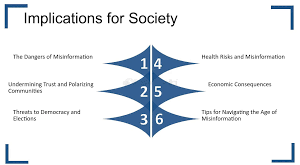Evolution of TV: From Inception to Virtual Revolution
It has been a situation where television has appeared to be a core component of homes all over the world for almost a century. Since its invention, it has revolutionized not only how we keep ourselves entertained but also how we relate and interact with our fellow human beings and how we perceive the world around us.
This paper shall delve into the history of television, its influence on society, and the contemporary landscape shaped by the world of new media.
Emergence of Television
the history of television began back in the late 19th and the beginning of the 20th century. These developments that took place then were led by the inventors Paul Nipkow, John Logie Baird, and Philo Farnsworth-the first demonstration of a working television device was in 1926;
Live images were transmitted by Baird. at the end of the Thirties, television had started to break its way into the u. s. and Europe, where the BBC started the world’s first public television service in 1936 .
Television used to be a luxury in the early days of its existence. Early commercials were monochrome, with very minimal programming and only a handful of homes could afford the set. yet, the put up-second world war years saw a speedy upward push in manufacturing, and by the Fifties, television had entered the American mainstream.
This period is commonly referred to because the “Golden Age of television,” time, which started and was defined by the use of such iconic indicates like “i love Lucy” and “The Ed Sullivan show.” those applications did not best entertain however also shaped social norms and conversations.
The rise of the television: 1950s and 1960
The Fifties and Nineteen Sixties were very crucial decades for television, as the medium came to be the main source of information and entertainment. the coming of color television in the Fifties injected a fresh quality into programming, while cable television came about in the 1960s, with the number of channels suddenly shooting up.
This diversification was what enabled area of interest programming, targeting special audiences, to set the level for the television landscape that we know today.
Televisions also played a very influential role in shaping cultural practice. The civil rights movement, for instance, was brought into living rooms, making issues of racial inequality the center of American consciousness.
The Vietnam War was also another landmark moment for television, as news footage brought the harsh realities of war into living rooms, shaping public opinion and policy.
The Impact of Television on Society
The television greatly impacted the society in various dimensions. It has changed our cultural narratives, shaped public opinion, and produced common studies among diverse populations. Reaching millions through an instant television is not just entertainment,
but it is also a very influential instrument for education and advocacy.
The visions on television have mirrored the mores of society, from the ideal family system of the Nineteen Fifties to the more complex, pluralistic visions of the modern age. Through the indicants seen in shows such as “The Cosby Show” and “Will & Grace”,
defying stereotypes and diversifying portrayals of race and sexuality, paving the way for further stories of proportion.
But television is not immune from its criticisms. Concerns about content quality, the prevalence of violence, and the effects of reality TV on social mores have been debated. How information is presented also will have an impact on the public’s perception, as sensationalism often supplants hard-hitting journalism.
As consumers, we need to be proactive in this complex media landscape.
The Digital Revolution: Streaming and more
The advent of the web has changed television once again. The innovation of streaming sites such as Netflix, Hulu, and Amazon Prime has changed the way audiences view different types of content and has reduced their subscription to the regular cable networks.
Viewing programs with instant facility at their convenience has enabled the fans to have effective control over their habits of viewing. Watching shows for an uninterrupted number of episodes has now become a global culture syndrome that changed the contours and waxed as well as waned narratives.
Streaming technology has also democratized the creation process of content. independent filmmakers, and creators can now share their work to global audiences except from wanting traditional gatekeepers of content. This diversification of voices and testimonies challenges the traditional narratives once ruling the screen.
but this digital revolution brings its own problems. Available content may be too plentiful, and the algorithms that govern what we watch repeatedly foster existing choices and exclude alternative viewpoints.
Meanwhile, concerns over data safety and locking up of content by some of the larger businesses fuel the debate over the future of media consumption.
The future of television
As we look into the future, television is poised to experience even more overhauls. Being at the frontline of technology, the change between virtual reality (VR) and augmented reality (AR) is only beginning to blur out differences from viewer to player as it creates immersive narratives that may redefine storytelling.
Interactive stories, where viewers can alter plot developments, are emerging to create new dimensions for the traditional view experience.
Another interesting evolution is that global content material. systems such as Netflix have strongly invested in foreign language content, allowing the recognition of shows like “money Heist” and “Squid sport” worldwide.
This trend no longer just enriches our choices of viewing but also promotes cross-cultural appreciation and understanding.
In addition, linking social media with the act of television viewing has opened up new avenues of attracting and connecting with the target audience. stay-tweeting during broadcast, participating in discussions online, and engaging with the creators have transformed a passive act of viewing into an active experience shared with co-viewers.
This might change the manner of programming and narrative structures in equal terms, both involving the audiences as well as the creators.
End
Television has progressed from its decadent past to be part of current culture. It has shaped and reflected societal mores, stimulated opinion, and encouraged reviews of community processes.
The future of television itself is expected to be as exciting as it has been in the past-to provide new ways of attaching, socializing, and entertaining.
It’s time for us to deal with the television with a critical eye as we entertain and accept its capacity to tell us stories and bond with each other. Whether in traditional announce formats or virtual new forms,
television will definitely continue to be a good-sized part of our lives-an effective mirror of the societies we live in, with all their complexities, and the stories that enrich our cultures. Television’s next chapter in evolution is on its way, and it will be a thrilling journey.


